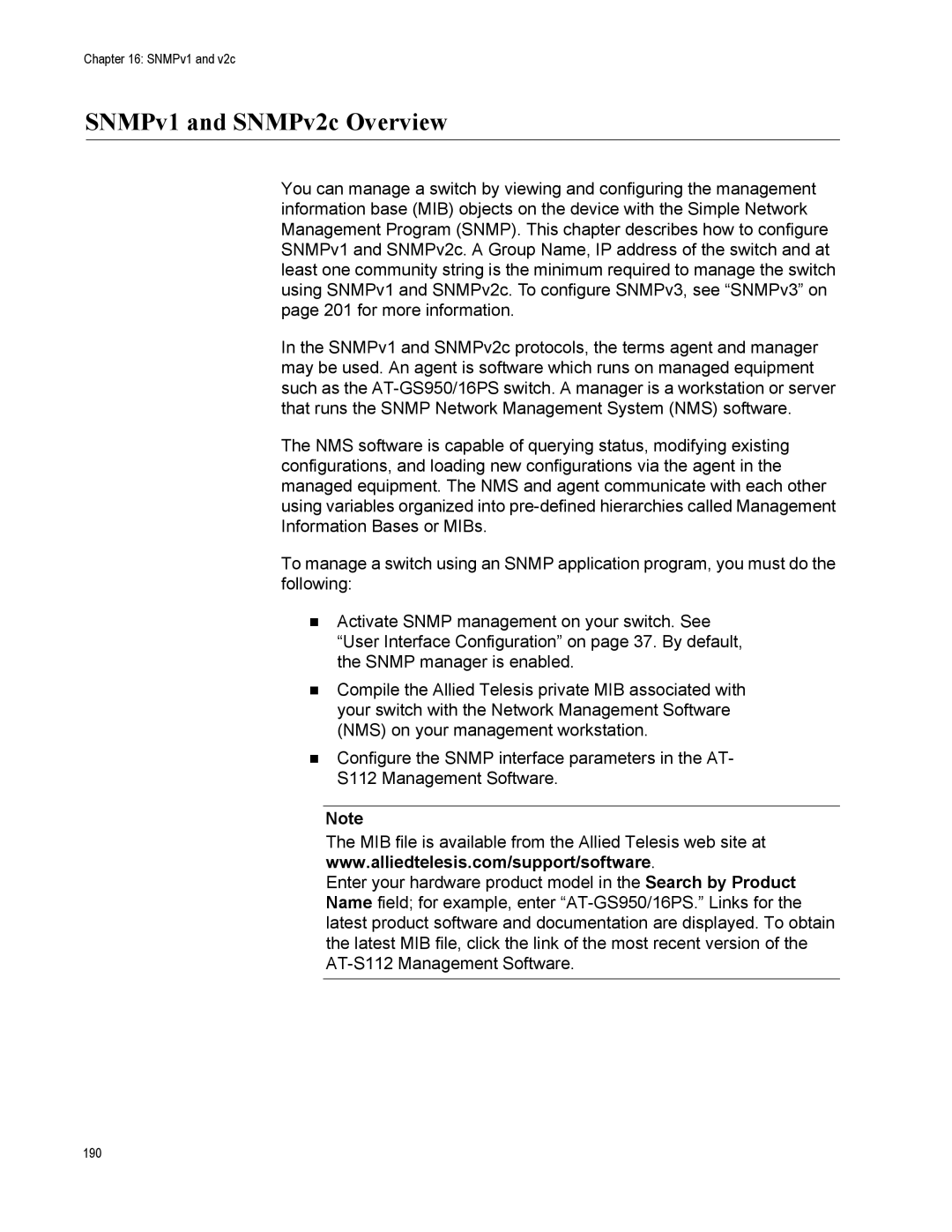
Chapter 16: SNMPv1 and v2c
SNMPv1 and SNMPv2c Overview
You can manage a switch by viewing and configuring the management information base (MIB) objects on the device with the Simple Network Management Program (SNMP). This chapter describes how to configure SNMPv1 and SNMPv2c. A Group Name, IP address of the switch and at least one community string is the minimum required to manage the switch using SNMPv1 and SNMPv2c. To configure SNMPv3, see “SNMPv3” on page 201 for more information.
In the SNMPv1 and SNMPv2c protocols, the terms agent and manager may be used. An agent is software which runs on managed equipment such as the
The NMS software is capable of querying status, modifying existing configurations, and loading new configurations via the agent in the managed equipment. The NMS and agent communicate with each other using variables organized into
To manage a switch using an SNMP application program, you must do the following:
Activate SNMP management on your switch. See “User Interface Configuration” on page 37. By default, the SNMP manager is enabled.
Compile the Allied Telesis private MIB associated with your switch with the Network Management Software (NMS) on your management workstation.
Configure the SNMP interface parameters in the AT- S112 Management Software.
Note
The MIB file is available from the Allied Telesis web site at www.alliedtelesis.com/support/software.
Enter your hardware product model in the Search by Product Name field; for example, enter
190
